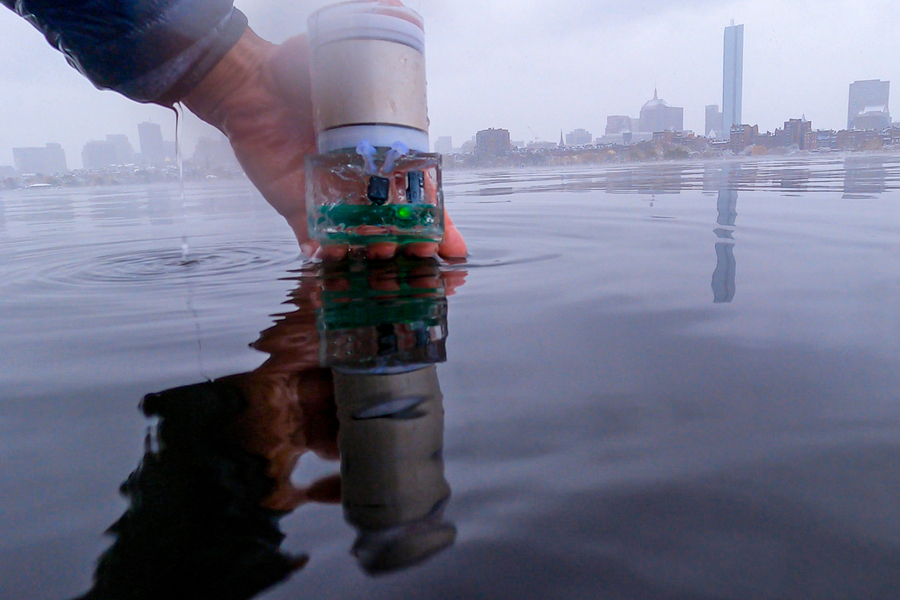
MIT researchers have built a battery-free pinpointing system dubbed Underwater Backscatter Localization (UBL). This photo shows the battery-free sensor encapsulated in a polymer before it is dipped into the Charles river.
Image: Reza Ghaffarivardavagh
GPS isn't waterproof. The navigation system depends on radio waves, which break down rapidly in liquids, including seawater. To track undersea objects like drones or whales, researchers rely on acoustic signaling. But devices that generate and send sound usually require batteries - bulky, short-lived batteries that need regular changing. Could we do without them?
MIT researchers think so. They've built a battery-free pinpointing system dubbed Underwater Backscatter Localization (UBL). Rather than emitting its own acoustic signals, UBL reflects modulated signals from its environment. That provides researchers with positioning information, at net-zero energy. Though the technology is still developing, UBL could someday become a key tool for marine conservationists, climate scientists, and the U.S. Navy.






